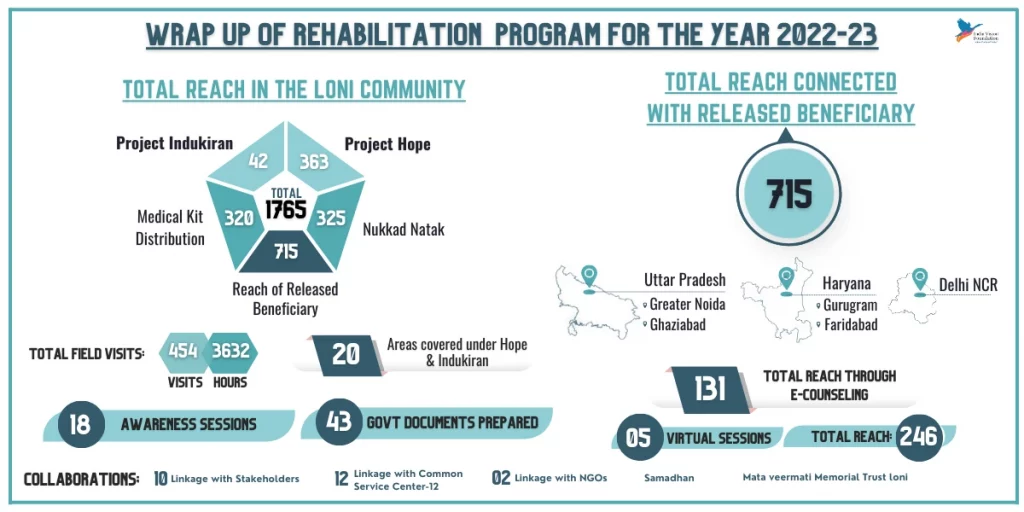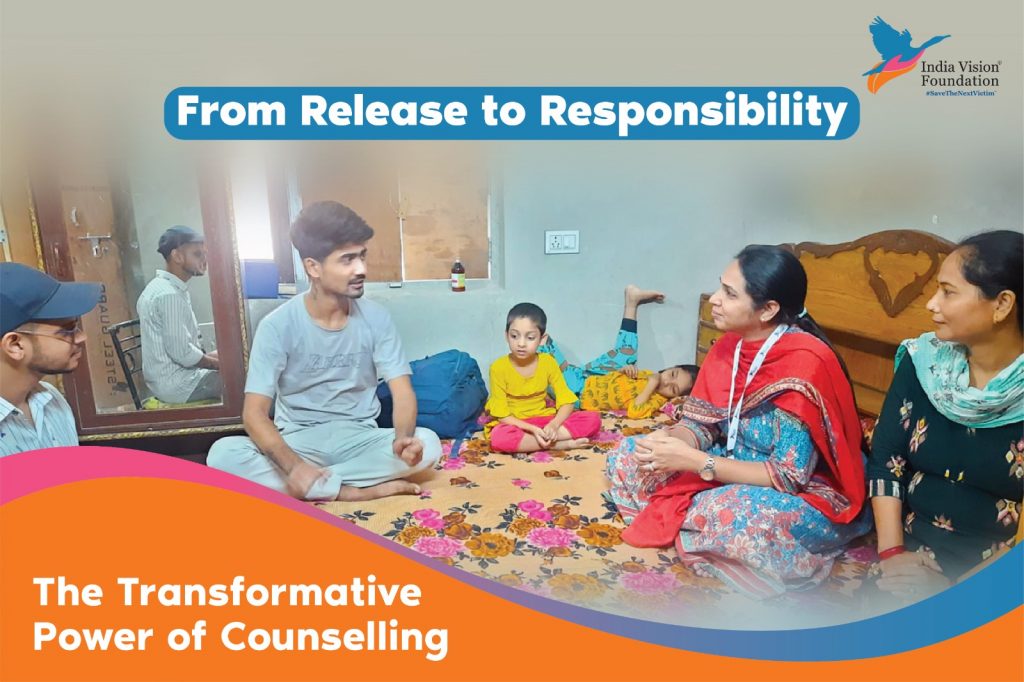Introduction:
Stepping out of the prison gates marks the beginning of a challenging journey for individuals seeking to reintegrate into society.
In this transition, the transformative power of counseling emerges as a guiding force, offering support, understanding, and a pathway towards responsible citizenship.
Here, we delve into the crucial role that counseling plays in the rehabilitation of former inmates, paving the way for a future marked by resilience, accountability, and positive change.
Understanding the Challenge:
The complexities of reintegration are multifaceted, and the challenges faced by those leaving the prison system are numerous. From grappling with the stigma of incarceration to readjusting to the demands of daily life, former inmates navigate a delicate balance between the past and the potential for a new beginning The Transformative Power of Counseling.
Counseling serves as a vital tool in this process, providing a supportive environment for individuals to confront their past, address emotional challenges, and develop the skills necessary for responsible living.
- Addressing Psychological Trauma: For many individuals, the scars of incarceration extend beyond the physical confines of the prison. Psychological trauma resulting from experiences within the system can hinder successful reintegration.
Click here to explore how counseling offers a safe space for former inmates to unpack and address these traumas, fostering emotional healing and resilience.
- Supporting Mental Health: Mental health often takes a toll during incarceration, exacerbated by the challenges of isolation and limited access to mental health resources.
Click here to discover how post-release counseling provides an opportunity for individuals to receive professional support, helping them navigate the complexities of mental health and develop coping strategies essential for their well-being.
- Developing Coping Skills: Life outside prison demands a different set of coping skills.
Click here to learn how counseling equips individuals with practical strategies to cope with stress, anxiety, and the myriad challenges of daily life. Learning effective coping mechanisms is crucial for avoiding the pitfalls that may lead to recidivism.
- Building Healthy Relationships: Successful reintegration hinges on the ability to establish and maintain healthy relationships. Click here to understand how counseling assists individuals in developing interpersonal skills, communication strategies, and conflict resolution techniques. Nurturing healthy connections is fundamental to breaking the cycle of criminal behavior.
- Navigating Employment Challenges: Securing employment is a significant hurdle for many former inmates.
Click here to explore how counseling services extend beyond emotional support to include practical guidance on resume building, job searching, and interview skills. Empowering individuals with the tools to navigate the job market enhances their chances of finding stable and fulfilling employment.
- Promoting Accountability and Responsibility: A cornerstone of successful reintegration is the cultivation of a sense of accountability and responsibility.
Click here to understand how counseling encourages individuals to take ownership of their actions, understand the impact of their choices, and develop a proactive approach to building a law-abiding and responsible life.
- Preventing Recidivism: Counseling plays a pivotal role in reducing the risk of recidivism.
Click here to discover how by addressing the root causes of criminal behavior, providing ongoing support, and teaching essential life skills, counseling becomes a proactive measure against the cycle of reoffending.
Implementation Challenges and Solutions:
While the benefits of counseling in inmate rehabilitation are evident, challenges exist in implementing comprehensive counseling programs. Limited resources, stigma surrounding mental health, and the need for systemic changes within the criminal justice system are hurdles that must be addressed.
- Resource Allocation: Securing adequate resources for counseling programs is a critical challenge.
Click here to learn how advocacy efforts, partnerships with mental health organizations, and governmental support are essential in ensuring that counseling services are accessible and comprehensive.
- Reducing Stigma: The stigma surrounding mental health is a pervasive barrier to seeking counseling.
Click here to explore how public awareness campaigns, educational initiatives, and destigmatization efforts are crucial in creating an environment where individuals feel comfortable seeking and receiving counseling without fear of judgment The Transformative Power of Counseling.
- Systemic Changes: Integrating counseling into the broader criminal justice system requires systemic changes.
Click here to understand how collaborative efforts between correctional facilities, community organizations, and mental health professionals are necessary to create a seamless continuum of care from incarceration to reintegration.

Implementation Challenges and Solutions:
While the benefits of counseling in inmate rehabilitation are evident, challenges exist in implementing comprehensive counseling programs. Limited resources, stigma surrounding mental health, and the need for systemic changes within the criminal justice system are hurdles that must be addressed.
- Resource Allocation: Securing adequate resources for counseling programs is a critical challenge.
Click here to learn how advocacy efforts, partnerships with mental health organizations, and governmental support are essential in ensuring that counseling services are accessible and comprehensive.
- Reducing Stigma: The stigma surrounding mental health is a pervasive barrier to seeking counseling.
Click here to explore how public awareness campaigns, educational initiatives, and destigmatization efforts are crucial in creating an environment where individuals feel comfortable seeking and receiving counseling without fear of judgment.
- Systemic Changes: Integrating counseling into the broader criminal justice system requires systemic changes.
Click here to understand how collaborative efforts between correctional facilities, community organizations, and mental health professionals are necessary to create a seamless continuum of care from incarceration to reintegration.


